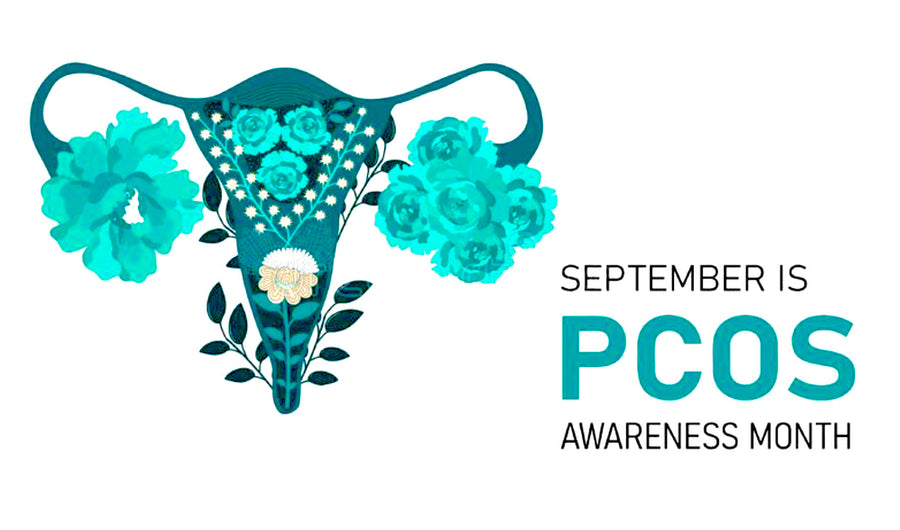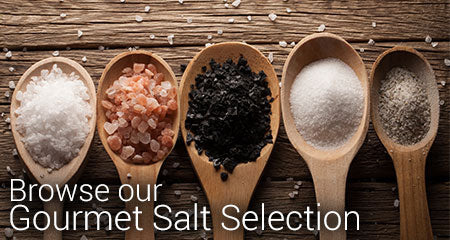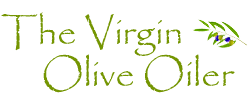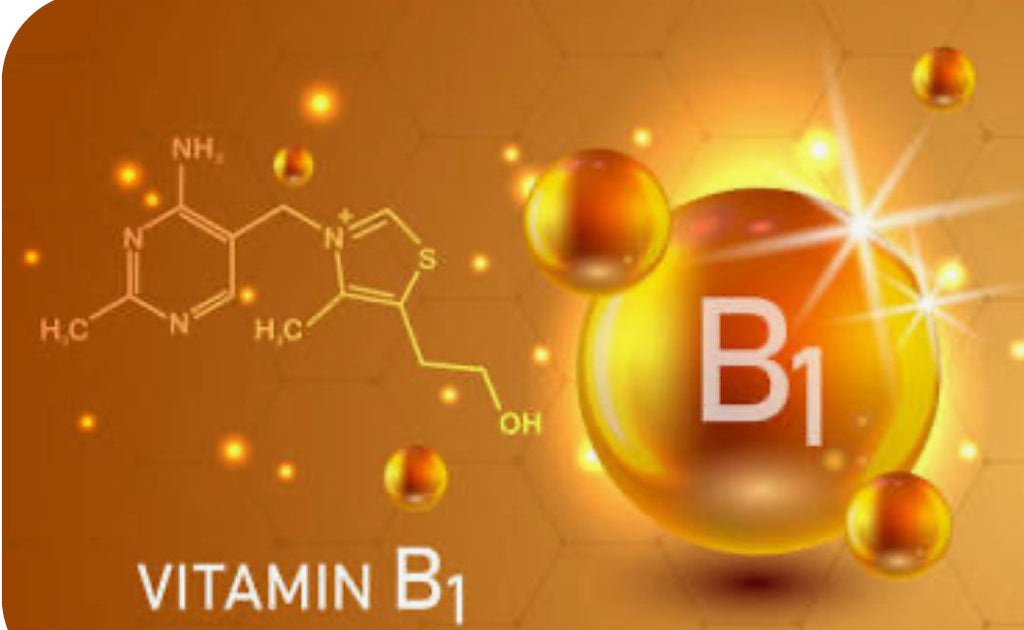PCOS and HP-EVOO - Blog # 74

Hello everyone! Welcome back to another Friday blog. Today I want to talk about PCOS - polycystic ovarian syndrome. Like many other metabolic dysfunctions, it is on the rise. It affects 6-20% -roughly 5 million women of reproductive age - and is the number one cause of infertility in women. When looking at PCOS around the world, that number goes up to 28% in obese women, particularly looking at India, the diabetic capital. “The prevalence of PCOS is increasing the world over and is showing a galloping increase in parallel with the rising prevalence of type 2 diabetes mellitus (T2DM).”
What is even more disturbing is that a new study, published in JAMA in 2022, looked at the prevalence of PCOS in adolescent females - the prevalence was 19.58%!!! WHAT????!!! That is nearly 1 in 5 girls. “Many women with PCOS demonstrate challenges to feminine identity and body image due to obesity, acne and excess hair; also, infertility and long-term health-related concerns compromise the quality of life and adversely impact on mood and psychological well-being. Some authors have shown that women who have PCOS are more prone to depression, anxiety, low self-esteem, negative body image, and psychosexual dysfunction.” With testosterone dropping 54.2% - check out blog # 72 - and PCOS on the rise, is it any wonder that hormone imbalance and confusion about “sexual identity” seem to be way more prevalent in today’s society?
What is PCOS? First, it is poorly understood. It is a hormonal imbalance where the ovaries are overproducing androgens (male hormone) coupled with IR (insulin resistance) and chronic low-grade inflammation. Ultimately, it is a vicious cycle whereby high insulin levels impair glucose metabolism, creating IR, and at the same time high insulin stimulates more androgen production! This alters lipid (fat) metabolism and protein synthesis as well, so many metabolic functions are altered.
Symptoms include infertility, irregular menstrual cycles/chronic anovulation, poly cystic ovaries, acne, obesity, IR, chronic low-grade inflammation, thinning scalp hair, hirsutism (facial or body male-pattern hair growth), depression, anxiety and increased stress. These women are more likely to have T2D (>50% by 40 years of age), obesity, gestational diabetes, heart disease, HTN (high blood pressure), stroke, sleep apnea, anxiety and depression. Women with PCOS are roughly 30 times more at risk of OSA (obstructive sleep apnea) and daytime sleepiness. “Obesity increases hyperandrogenism, hirsutism, infertility and pregnancy complications both independently and by exacerbating PCOS. Furthermore, women with PCOS have increased risk factors for T2DM, cardiovascular disease (CVD), impaired glucose tolerance (IGT), and potentially some malignancies.” Further, mortality rate over 5 years is 5.5% vs 1.9% for normal glucose metabolizers - almost 3 x as high!!!
Women with PCOS are also at significantly higher risk for endometrial cancer. “Epidemiological studies have shown increased endometrial cancer risks among pre- and postmenopausal women who have elevated plasma androstenedione and testosterone, and among postmenopausal women who have increased levels of estrone and estradiol.” Further, chronic high insulin levels are a risk factor. Researchers note that "unopposed estrogen,” due to low progesterone, drives the abnormal tissue growth of endometrium that can result in cancer. “We conclude that development of ovarian hyperandrogenism may be a central mechanism relating nutritional lifestyle factors to endometrial cancer risk.”
So, what is causing PCOS? PCOS is multifactorial. Factors include environmental, metabolic, genetic and neuroendocrine. “Recent studies in humans and rodent models have shown an association between changes in the gut microbiome and the metabolic and clinical parameters of PCOS. In addition, it has been proposed that dysbiosis of gut microbiota may be a potential pathogenetic factor in the development of PCOS.” Researchers noted that sex hormones can alter the gut microbiome with absent as well as abundant distinct species and altered nutritional enrichments. They also note that an altered gut microbiome can cause IR (insulin resistance). “Alterations in gut microbiota were often associated with hyperandrogenism and metabolic markers.” To understand the complexity, we must understand how estrogens get produced and eliminated from the body.
Estrogens are made from cholesterol in many places in the body, but primarily the ovaries in reproductive women and testes in men. In the follicles of the ovaries, thecal cells produce androgens (not estrogen) that are transported to granulose cells where they are converted into estrogen. Enzymes are required to convert cholesterol into one of 3 major forms - depending on the stage of a woman’s life. Estradiol is the most potent estrogen during the premenopausal period and is responsible for sex differentiation, embryonal and fetal development of brain networks, neuro-protection, and even appetite control. Since estrogens are so important, they are made in some other areas as well. “Estrogens can exert neuroprotective roles by acting as anti-oxidants, promoting DNA repair, inducing the expression of growth factors, and modulating cerebral blood flow.” The intestines (estrogen-gut-microbiome axis), liver, heart, fat tissue, brain, adrenals, skin, pancreas, spleen and even blood vessels are extra-gonadal sources.
Cholesterol is converted into Pregnenolone, the master sex hormone, by cytochrome (CYP) P450 enzymes. “Cytochrome P450 enzymes are present in most tissues of the body, and play important roles in hormone synthesis and breakdown (including estrogen and testosterone synthesis and metabolism), cholesterol synthesis, and vitamin D metabolism. Cytochrome P450 enzymes also function to metabolize potentially toxic compounds, including drugs and products of endogenous metabolism such as bilirubin, principally in the liver.” The enzyme involved in the last step of the conversion to estradiol is CYP-19 aromatase and is part of the cytochrome P450 family. Aromatase is responsible for converting androgens into estrogens. Why is this important?? These are the enzymes blocked by glyphosate!!! Check out blog # 70. If this enzyme is not able to perform its job, you can see how estrogen levels could be affected, causing hormonal imbalance. Studies also show that inhibition of aromatase increases neurodegeneration. You may be able to make things a LOT better just by going organic and detoxifying your body.
Estrogens must be cleared by the body as well. Detoxification takes place primarily in the liver. The goal is to make estrogen more water-soluble to be excreted in urine or feces. Phase 1 uses CYP enzymes to add a hydroxyl (OH) group. Phase 2 involves conjugation - methylation, sulfation and glucuronidation - to further water-solubilize it and to prevent the formation of ROS (reactive oxygen species). Now the conjugated estrogens can be excreted from the body - or - deconjugated back into free estrogen by the enzyme β-glucuronidase. This enzyme is capable of raising estrogen levels and is found in high amounts in breast tissue. It also can be produced by gut microbes. This is how estrogen levels can be affected by your microbiome - and how dysbiosis can lead to breast cancer, for example.
So, what can we do to prevent or even reverse PCOS in women and protect our young girls?
1. GET INSULIN SENSITIVE!
- Go Organic - remove GMO and glyphosate-sprayed foods. This includes grains like wheat and oats. Even though they aren't GMO, they spray wheat and oats prior to harvest to desiccate. Glyphosate is literally causing metabolic syndrome and many other chronic diseases.
- IF - Intermittent fasting. Roughly 14-16 hours of fasting and having meals in an 8-10 hour eating window. This down time allows insulin levels to drop. Your body is most sensitive after fasting - so eating good fat and protein for your break-fast is a good idea.
- Stop snacking - the more often you eat, the more you spike blood sugar and insulin, exhausting the pancreas. You also interrupt the MMC (migrating motor complex) that is like the street sweeper that comes in to clean up about 90 min after you eat.
- Eliminate - sugar, grains, high carbohydrate foods that cause a huge insulin spike. Fiber and fat don’t require insulin.
- Sleep - get good sleep. Lack of sleep causes IR. Get bright light first thing in the morning. No food 3 hours before bedtime. Shoot for 10pm bedtime. No blue light from TV, phone, devices or LED lights - use infrared or non-toxic candles once the sun goes down. Sleep in a dark, cool room. White noise can be helpful if you have a partner that snores. Epsom salt bath before bed. Move your phone to another room to get rid of EMF (electromagnetic frequency).
- Lower chronic stress - Chronic elevated cortisol causes IR! Include mindful meditation and deep breathing.
- Exercise - Increases uptake of glucose independent from insulin, increases cellular sensitivity to insulin, reverses IR.
- Marjoram - This herb has powerful antioxidant, anti-inflammatory, anti-diabetic, antiseptic, antifungal, antiviral and many antibacterial properties - against pathogenic microbes such as E.coli, candida, measles, mumps, chicken pox, flu, common cold, bronchitis, urinary tract infections - even food poisoning, malaria and typhoid. It has been shown to reduce anxiety, relieve stress, soothing, natural sedative, combats bruxism (grinding teeth), and is a natural pesticide as well - without the harmful side effects of glyphosate!! It is a natural pain-reliever - reducing menstrual symptoms, PMS, sore muscles, headaches similar to NSAIDs. It improves gut function and motility by stimulating peristalsis. It further can stimulate the kidneys to promote urination and is a vasodilator, lowering blood pressure. It is a rich source of vitamin K, vitamin A, folate, magnesium and potassium helping to prevent neuronal damage, dementias and Alzheimer’s. A pilot study in 2016 looked at hormone levels in women with PCOS after drinking marjoram tea 2x/day for 1 month reported: “results obtained in the present study show the beneficial effects of marjoram tea on the hormonal profile of PCOS women because it was found to improve insulin sensitivity and reduce the levels of adrenal androgens.” A study in 2020 showed that marjoram significantly decreased ovaries' weight, improved insulin sensitivity, improved ovarian enzyme levels and decreased IL-6 (interleukin-6, pro-inflammatory). IL-6 is involved in the devastating cytokine storm.
- Berberine - the next Turmeric. Antioxidant, anti-inflammatory, anti-viral, anti-diabetic (better than metformin), anti-arrhythmic (involves calcium), anti-hypertensive. “Berberine in patients with metabolic syndrome can effectively regulate blood glucose and blood lipid of patients, alleviate insulin resistance and reduce the level of inflammatory response in the body.” Women with PCOS who took berberine saw greater reductions in body fat loss than metformin or placebo after 3 months - with lowered insulin and glucose levels similarly to metformin.
- Curcumin - (Turmeric) significantly improves multiple metabolic markers: fasting glucose, fasting insulin, HOMA-IR (homeostasis model assessment of insulin resistance), QUICKI (quantitative insulin sensitivity check index), HDL and total cholesterol. Turmeric is a powerful anti-inflammatory, antioxidant, anti-diabetic, anti-tumor, anti-hypertensive and neuro-protective among many other benefits. It is even being used in combination with fecal transplant - see below.
- Alpha-Lipoic Acid - for peripheral neuropathy- anti-oxidant, glucose sensitizer, insulin sensitizer, increases glutathione, inhibits cancer, autonomic neuropathy, protects cell membranes, diabetic neuropathy. Helps with post-chemo neuropathy (600-1800mg) -Take on empty stomach Can get in organ meats, spinach, broccoli, Brussels sprouts and tomatoes.
- Apple Cider Vinegar = lowers blood sugar. 2T is equivalent to metformin in studies. Take up to 3 times per day on empty stomach. The “anti-glycaemic effect of acetic acid found in apple cider vinegar was attributed to reduced starch digestion and/or delayed gastric emptying.” Enhances digestion and absorption of trace minerals.
- Ceylon cinnamon - this is different than other varieties, lighter in color and more delicate flavor - In studies, it is shown to reduce insulin resistance by improving liver function and improve all variables of metabolic syndrome.
- HP-EVOO - (high polyphenol EVOO) - polyphenols feed and trigger mitochondria to uncouple - preventing damage and signaling them to divide. EVOO also feeds microbiome, provides ketones for fuel, triggers the conversion of white adipose tissue into brown adipose tissue boosting metabolism and reversing metabolic syndrome. EVOO also provides vitamins E and K and enhances absorption of other fat-soluble nutrients. Check out blog # 73!
2. BALANCE HORMONES
- Eat healthy fats - Healthy fats are number one here! All your hormones are made from cholesterol. Your body makes cholesterol from fat. Therefore, you MUST consume fat to balance your hormones. EVOO, grass-fed butter and Ghee, coconut oil, avocado oil…These fats tend to be anti-inflammatory
- Avoid seed oils - canola, corn, palm…They are inflammatory.
- Phytoestrogens - stimulates conversion of androgens to estrogens - Soy is the highest source of genistein which stimulates aromatase activity in the endometrium. Most soy is GMO - Choose organic - Genistein “acts as a chemotherapeutic agent against different types of cancer, mainly by altering apoptosis, the cell cycle, and angiogenesis and inhibiting metastasis.” {However, you must be careful with phytoestrogens - because they mimic our estrogen, it may prevent our body’s production.}
- Maitake mushrooms have been shown to induce ovulation independently by 77%, and in combination with fertility therapy by 93.5% in PCOS patients.
- Anti-androgens - (plant-derived) properties that block male hormones and promote the conversion of androgens into estrogens - spearmint tea, red reishi mushrooms, licorice, Chinese peony, green tea, black cohosh, chaste tree and saw palmetto extract. Herbs can also help with PCOS.
- Sea Kelp - high in iodine that helps regulate and balance estrogen
- Minerals - a study in 2018 found an increased risk of sporadic anovulation in women with insufficient intakes of sodium and manganese. Many minerals are depleted from the soil due to glyphosate (metal chelator) and other herbicides and pesticides. Use Himalayan sea salt. Drink mineral water.
- Marjoram - see above
- ET - ergothioneine - This is a powerful antioxidant found all over the body. It peaks at adulthood and begins a slow decline as we age. It exhibits a “wide range of cytoprotective and disease mitigating properties.” There aren’t many studies on ET yet, but oral administration in mice increased sperm counts and motility, and decreased sperm abnormalities. ET has been shown to protect cells from apoptosis (cell death) due to exposure to palmitic acid (saturated fat from palm). Find this in organ meats (liver,kidney), black beans, kidney beans.
- Apigenin - A powerful flavonoid with antioxidant, anti-inflammatory, anti-diabetic, anti-cancer, anti-depressive, cardio-protective, hepato-protective (liver) and anti-Alzheimer’s properties. They stated the “hepatoprotective role of this nutraceutical compound, attributed to its capacity to increase the activity of cellular antioxidants, such as catalase (CAT) and superoxide dismutase (SOD), and glutathione (GSH).” The highest levels are in dried parsley!!! Consume 1T/day on salads or sprinkle on other foods. Drizzle with EVOO to enhance absorption.
- Vitamin D3 and calcium - vitamin D regulates calcium - Eat foods high in calcium (avoid taking calcium supplements) and supplement vitamin D. A study in 2000 found that supplementing calcium in animals lacking a vitamin D receptor had a 60% increase in ovarian aromatase activity. You want your vitamin D3 levels to be 70-90 on your bloodwork. Ask your MD to order it - cheap test.
- Vitamin B5 (Inositol) - Required for the production of inositol triphosphate that regulates a number of hormones such as thyroid-stimulating hormone, follicle-stimulating hormone (FSH) and insulin.
- HP-EVOO - (high polyphenol EVOO) provides powerful anti-inflammatory and antioxidant phenols to boost metabolism - our mitochondria love them - combat chronic inflammation associated with PCOS, as well as vitamin E and vitamin K. Oleic acid helps to heal the lining of the gut, reverse IR and NAFLD (non-alcoholic fatty liver disease) and metabolic syndrome.
3. FIX YOUR MICROBIOME
- Go organic - eliminate glyphosate from your food as much as possible. Androgens are triggered by glyphosate and other toxins.
- Avoid Obesogens - toxins, food additives, preservatives, artificial sweeteners
- Eliminate GMO foods - they kill your gut
- Eliminate sugar and grains - they feed the bad gut bugs.
- Eliminate processed and ultra-processed foods - they have hidden sugar, toxins and preservatives.
- Eat polyphenols for your good gut bugs! - HP-EVOO, rainbow veggies…
- Eat fermented foods - sauerkraut, kimchi, kefir, greek yogurt, natto…These foods are full of probiotics - and their post-biotic metabolites!!!! Sauerkraut, for example has >100x the probiotics found in probiotic formulations - and they can survive the acidic environment of the stomach that can be problematic with probiotic formulations. Further, it contains fiber (prebiotics) and short-chain fatty acids (postbiotics) - that are so beneficial to us - as well as blocking the enzyme that converts testosterone to DHT (that causes hair loss). Sauerkraut is also one of the highest sources of vitamin C!
- Eat high-fiber foods - this is food for your microbes! Eat the rainbow of veggies and fruits, nuts/seeds
- Promote Akkermancia (especially beneficial microbe) - This microbe creates the mucus layer that prevents leaky gut! But, if not fed will eat the mucus layer and cause leaky gut. Include cranberries, pomegranates, black tea, grapes and walnuts.
- Take a good prebiotic/probiotic - the best I've found is Seed. It has clinical trials and research behind it.
- Fecal transplant - “Faecal microbiota transplantation (FMT) is an innovative approach to treat diseases that are associated with gut dysbiosis, by transferring a healthy stool microbiota to a recipient with disease. Beyond the bacteriome, the human gut also harbours diverse communities of viruses and fungi, collectively known as the virome and the mycobiome.” Researchers have demonstrated normalization of estrogen levels and ovulation following FMT in PCOS mice. They have also normalized obese mice through FMT. The microbiome plays a bigger role than anyone realized. However, you could also transplant something you don't want.
- HP-EVOO - (High polyphenol EVOO) There are > 100 different phenolic compounds in EVOO that possess powerful antioxidant activity. The higher the polyphenol count, the more powerful the action on the body. “Extra-virgin olive oil affects the gut microbiota by reducing the abundance of pathogenic bacteria, stimulating the growth of beneficial bacteria, and increasing the production of microbially produced short-chain fatty acids (SCFAs), which exert a wide range of anti-inflammatory effects and can modulate the expression of a variety of genes via epigenetic mechanisms.”
So, until next time my friends…Drink, Drizzle, Digest HP-EVOO at least 4T raw daily, - use more for cooking and drizzling onto your food - eat the rainbow of organic or wild-sourced or organic veggies (7-9 C) and low-glycemic fruits (to get the rainbow of gut microbes!) - eat wild-caught, pasture-raised, grass-fed - get plenty of sunshine - supplement magnesium, zinc, vitamin D3 + K2 - get your trace minerals and electrolytes with good sea salt - Celtic is hand-harvested and Himalayan was formed before plastics - eat foods high in lutein - drink your body weight in oz of water - get a good pre/probiotic - consume digestible and indigestible fiber for your gut microbes - adaptogens (such as mushrooms) and methylation donors (kale, beets, spinach, cruciferous, lion’s mane…), marjoram, rosemary, oregano, parsley and other herbs to detox, enhance overall health and reverse aging and disease - exercise your body and mind - add a few minutes of mindful meditation to your day to combat stress - take a hot Epsom salt bath and follow with a cold shower/ice plunge - practice “earthing” as an anti-inflammatory - remove EMF (electromagnetic frequency) devices and blue light - use IR (infrared) from incandescent lighting, non-toxic candle or light a fire to enhance sleep and...turn off the light!! #HP-EVOO
This blog is intended for informational purposes only. Discuss strategies with your Healthcare Practitioner.







Comments (2)
You forgot a really important thing in your blog today. Women with PCOS are the second highest risk group for developing endometrial cancer behind menopausal/post menopausal women. The high levels of unopposed estrogen that cause disruptions in womens’ menstrual cycles allow the endometrial lining to thicken, a condition called endometrial hyperplasia, which becomes endometrial cancer— when, not if.
September is gynecological cancer awareness month and our risk of endometrial cancer which is preventable with proper care of PCOS is not widely known. My doctors didn’t make me aware of it until it was too late, and I had cancer. I had to have a hysterectomy, with oophorectomy (ovaries removed), am in menopause at 38, and can’t take Hormone replacement therapy because it could cause a recurrence of my cancer. I lost the ability to have children, and as a single cancer survivor, I’m not eligible for adoption, either.
Please share this with your readers. They need to know.
Katie
Hi Katie!
Thank you so much for your comment! I appreciate you reading my blog! You are absolutely right. I don’t know how I overlooked this aspect! My goal is to give everyone the information as well as the tools to make change. My heart is crushed for you and all you’ve gone through. I will dive into this aspect and bring this info to the blog!
Wishing you health and happiness
Julie